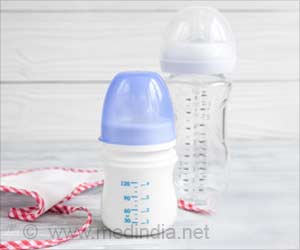
Most of the caregivers did not follow the expert recommendation to provide cow’s milk to their infants (6-11 months) instead they served non-recommended milk like toddler milk and plant milk. They also gave them other milk products like infant formula.
‘One-third of the infant caregivers serve non-recommended milk to the young children.’
“We explored the provision of recommended and non-recommended milk products to infants and toddlers, so we looked at infant formulas, toddler milks, cow milks, and non-dairy milks. We also wanted to find any sociodemographic factors that might be associated with the types of milks offered by caregivers of diverse backgrounds,” says Maria J. Romo-Palafox – at Saint Louis University.
About two third of the caregivers served their children with recommended milk like breastfeeding, cow’s milk and infant formula.
Researchers also found that the child’s age, household income, and racial background of the caregiver were associated with the type of milk the children received. More research is needed to understand and interpret the product claims and marketing might affect the health.
READ RELATED: Pregnant jockey, 31, is busted behind the wheel nearly FOUR times over the legal alcohol limit
According to Dr. Romo-Palafox “It’s important to note that infant formulas are not inherently bad. We are glad this product exists for moms who cannot breastfeed. But the public should have all the information so they can make an informed decision about what is best for their baby,”
The study gives an opportunity to create awareness to healthcare providers about nutrient deficiencies, dehydration and under nutrition when providing non-recommended milk to infants instead of breast milk.
Source: Medindia
Source:










